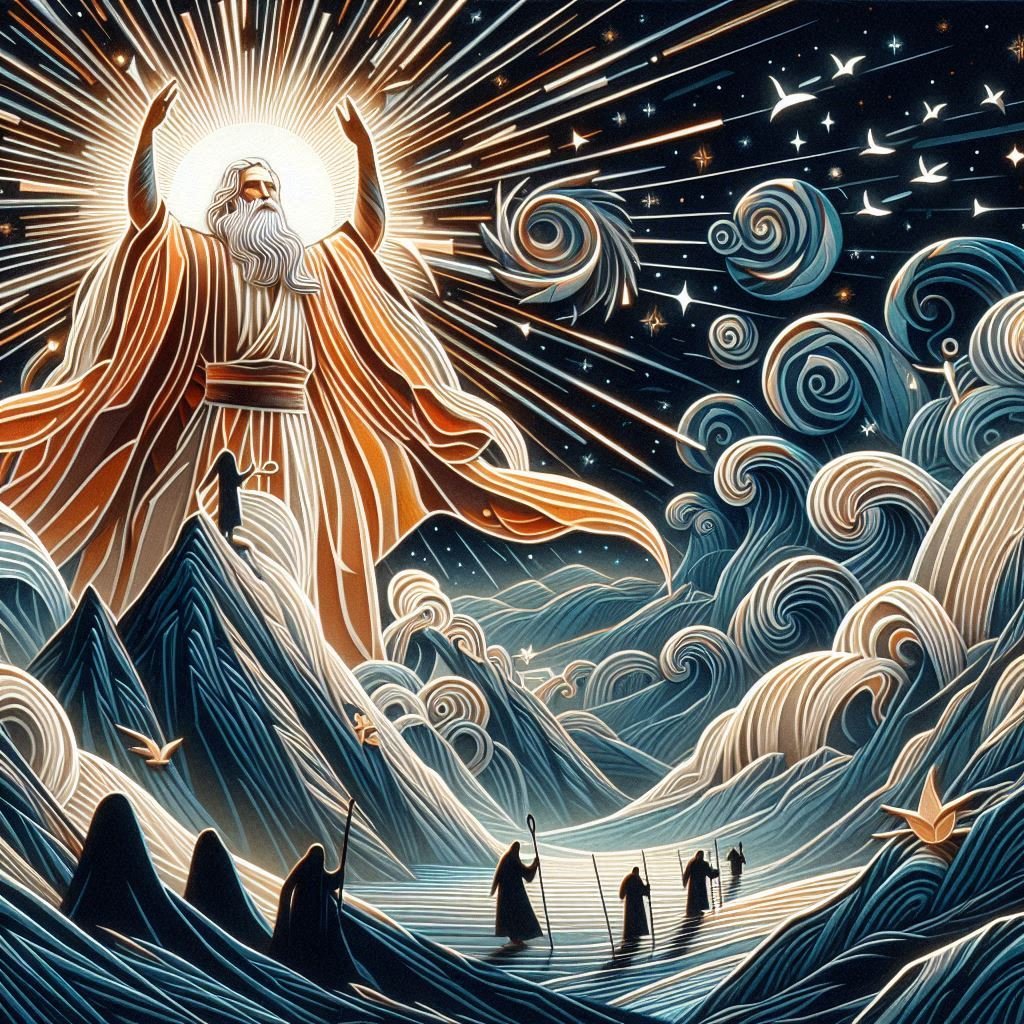1 Oppression in Egypt (Exodus 1-2):
The book of Exodus begins with the Israelites living as slaves in Egypt under the oppressive rule of Pharaoh (Exodus 1:8-14). Despite their suffering, their population continues to grow, prompting Pharaoh to issue a decree to kill all Hebrew male infants (Exodus 1:15-22). In this time of crisis, Moses is born and miraculously spared from Pharaoh's decree (Exodus 2:1-10).
2. Moses' Call and the Burning Bush (Exodus 3):
As Moses grows up, he witnesses the plight of his people and feels compelled to intervene. One day, while tending to sheep in the wilderness, he encounters a burning bush that is not consumed by the flames. Through this miraculous sign, God calls Moses to lead His people out of Egypt and into the Promised Land (Exodus 3:1-22).
3. The Plagues and Pharaoh's Resistance (Exodus 4-12):
Armed with God's command, Moses returns to Egypt and confronts Pharaoh, demanding the release of the Israelites. However, Pharaoh's heart is hardened, and he refuses to let the people go. In response, God sends a series of ten plagues upon Egypt, each more severe than the last, demonstrating His power over the Egyptian gods and compelling Pharaoh to relent (Exodus 7-12).
4. The Passover and the Exodus (Exodus 12-14):
The final plague, the death of the firstborn, prompts Pharaoh to finally release the Israelites. Before their departure, God institutes the Passover, instructing the Israelites to sacrifice a lamb and mark their doorposts with its blood (Exodus 12:1-13).
The blood serves as a sign, causing the angel of death to pass over their homes. The Israelites hastily leave Egypt, and God leads them through the wilderness toward the Promised Land (Exodus 12:29-42).
5. Crossing the Red Sea (Exodus 14):
As the Israelites flee, Pharaoh changes his mind and pursues them with his army. Trapped between the Egyptian army and the Red Sea, the Israelites fear for their lives.
But God miraculously parts the waters of the Red Sea, allowing the Israelites to cross safely on dry ground (Exodus 14:21-31). When the Egyptian army attempts to follow, the waters close in, drowning them and delivering the Israelites from their oppressors.
6. Journey through the Wilderness (Exodus 15-18):
Following their deliverance from Egypt, the Israelites embark on a journey through the wilderness, guided by God's presence in the form of a pillar of cloud by day and fire by night (Exodus 13:21-22).
Along the way, they face challenges such as thirst, hunger, and attacks from hostile nations (Exodus 15-17). Despite their grumbling and disobedience, God continues to provide for their needs and instructs them in His laws and commandments.
7. The Giving of the Law at Mount Sinai (Exodus 19-24):
At Mount Sinai, God reveals Himself to the Israelites in a powerful display of His glory. He gives them the Ten Commandments and establishes a covenant with them, promising to be their God and lead them into a land flowing with milk and honey if they obey His commands (Exodus 19-20).
Moses ascends the mountain and receives additional laws and instructions from God, including regulations for worship, justice, and moral conduct (Exodus 21-24).
8. Construction of the Tabernacle (Exodus 25-40):
Following the giving of the law, God commands the Israelites to construct a portable sanctuary, known as the Tabernacle, where His presence will dwell among them (Exodus 25-27).
The Tabernacle serves as a central place of worship and symbolizes God's desire to dwell among His people (Exodus 40:34-38). The book of Exodus concludes with the completion of the Tabernacle and God's glory filling the sacred space.
In summary, the book of Exodus narrates the miraculous deliverance of the Israelites from slavery in Egypt, their journey through the wilderness, and the establishment of their covenant relationship with God. It highlights God's faithfulness, power, and redemption, as well as the importance of obedience and trust in Him.
-
Add a short summary or a list of helpful resources here.

